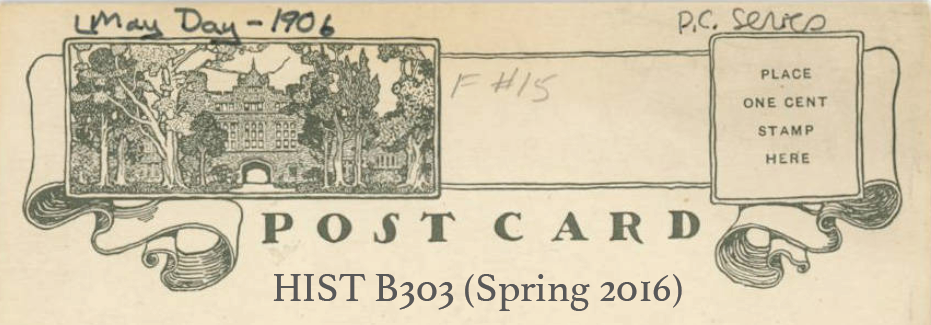“The master’s tools will never dismantle the master’s house.” — Audre Lorde
I was fortunate enough, by complete accident, to purchase a copy of “Ebony & Ivy” in which someone had not only underlined key points, but made several insightful comments in the margins. At the top of page 136, where Wilder discusses how several slaveholders donated supplies and slave labor to the building of the College of Rhode Island, the previous owner of my copy wrote, “Is the university one of the master’s tools? If so, this presumably represents an exception to Lorde’s famous assertion…”
On the Community Day of Learning, during the opening session, I engaged in conversation with a staff member and a faculty member. As we talked about class, both asserted the idea, that I’ve heard time and time again, that education is the “great equalizer” — that the goal is to get everyone access to the same quality of education, because once everyone can attend an elite educational institution like, say, Bryn Mawr, they will automatically have access to equal opportunities and therefore equality will be attained.
There are, of course, myriad problems with this view of education as the automatic route to equality. In a session I helped facilitate for the Community Day of Learning, on cultural, social, and symbolic capital, we explored how, even when students from marginalized groups gain access to a place like Bryn Mawr, they are often unable to attain the same opportunities as their peers from more privileged backgrounds because they don’t possess the knowledge, connections, and ways of being that, while never explicitly taught at Bryn Mawr, are required to gain access to many opportunities that are supposedly open to all.
There are of course many more reasons why education does not serve as a great equalizer, but I think Wilder, in “Ebony & Ivy”, introduces one that I hadn’t fully considered before — that higher education in America was a racist project, built upon slave labor and meant to sustain white superiority through the production of a body of “knowledge” that claimed to justify white domination. A quote from “Ebony & Ivy” that really stuck with me, from page 182, is: “Atlantic intellectuals operated under social and economic constraints that limited and distorted the knowable.” Thomas Kuhn, in his book “The Structure of Scientific Revolutions”, argues that the production of scientific knowledge is cyclical — knowledge is produced within a paradigm until enough evidence builds up to overthrow that paradigm, and then there is a scientific revolution and a new paradigm, that incorporates the new “facts” but is likely incomplete in other ways, comes into being. Since knowledge produced in the early years of the American academy came into being in a paradigm of white supremacy, evidence or facts that contradicted that paradigm were literally unknowable. Even though our scientific and academic endeavors don’t operate in the same paradigm now (although that obviously doesn’t mean we’ve overthrown white supremacy, in the natural sciences or anywhere else; it just looks somewhat different), everything we have now in American academia — not only the buildings and the wealth, but the knowledge itself — is founded upon the ideology of white supremacy. How can something that is both built by the master’s tools and one of the master’s tools itself ever be the “great equalizer” that we, at an elite academic institution that prides itself on being “liberal” and “diverse”, so desperately want to believe it is?
I want to believe that there is hope for academia, that there is a way to revolutionize and radicalize this fundamentally racist project, but reading “Ebony & Ivy” gives me yet more evidence that this hope is probably misplaced. I don’t think I’m going to give up hoping though, and I wouldn’t want to. We need to walk a thin line between not hoping too much, lest we ignore all of the structural injustices impeding progress, and hoping just enough, so that we are spurred to join with our communities to work for equality. Universities likely can’t be made places of justice but, as long as we think there’s even the slightest possibility of that future, at least we will continue to be motivated to change them.

We’re in an endless cycle!!! We need academia to make change but academia is also hindering change. So sad.